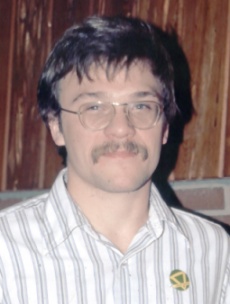CASEY J. JASON
Then:
President and Co-Founder of Northwestern Students for a Better Environment; undergraduate pre-med student in biology.

Now:
B.S., Northwestern University; M.D., Duke University; Post Doctoral Fellowships: John Hopkins, Duke, University of California. Dr. Casey J. Jason, recipient of several awards from NIH and the British Medical Association, is a pediatrician; he spent five years working at the EPA with Jim Reisa; in the field of medicine he has contributed valuable research on the potential of environmental health effects contributing to unexplained low birth weight. Dr. Jason is an advocate for the Hospitalist movement, and is currently serving as an ER doctor in Maryland.
Memories of Project Survival:
"Project Survival was a sleeping giant - it was important for the way it was done. What we did was something we could build on - the war protestors had an important role - they helped stop the war - but we helped save the planet."
How did you get involved?
Casey Jason, an inveterate activist, had taken a year off after his freshman year at Northwestern, and had just returned to campus. "The first day I came back, I took a long walk along the shore. I thought, ‘If ever there was a place that can be a seedbed for change it can be NU, here on the shore." Casey approached Jim Reisa (a graduate student in ecology and biological science) with the challenge of taking action, and together they created Northwestern Students for a Better Environment: "That's when I talked to Reisa - I thought working with grad students was better then working with undergrads - they could write position papers, could base things on research. Jim was an amazing coordinator - he said, ‘I know just the people we need to bring here. Everyone in this group was unique."
Memories of NSBE and Project Survival:
"Project Survival was entirely student led - the administration was reluctant to get involved. They were used to the Vietnam (anti-war) protests. But we worked on creating a way. Some of the faculty at Tech were very supportive. Wes Pipes in particular, especially on the phosphate issue. But everyone in this group was unique - brought something special to the table: Jim, Chuck (Charles Sigwart), Warren, Wes."
Wes suggested they get on top of the phosphate issue. Once the grad students completed their research (determining the degree of phosphates released in one load of laundry with a variety of detergent brands), and the list created, Casey went on a crusade to get the grocery chains to post it. He finally got a meeting with the CEO of Jewel. That proved to be the critical wedge - newspapers wouldn't print the list, but Jewel finally decided to get out in front and ran a full page ad in one of the Chicago paper, and to post the phosphate list in their stores. People began to buy the detergent that had the lowest phosphate level, and the market place demanded change. That led to the state of Illinois creating the first policy to ban detergent phosphates in the country.
Any advice to students today?
"People should take a chance on being an innovator. Leave something better then you found it, make a difference for those who come after you. You're presented with opportunities throughout your life - you can either take them or pass them by. I take all I can." One example: on September 11, 2001, Casey turned up at the Pentagon, "I was going there to do a presentation, had just turned onto the Parkway, when I heard about the plane and I kept heading for the Pentagon. I helped start the critical care unit."
